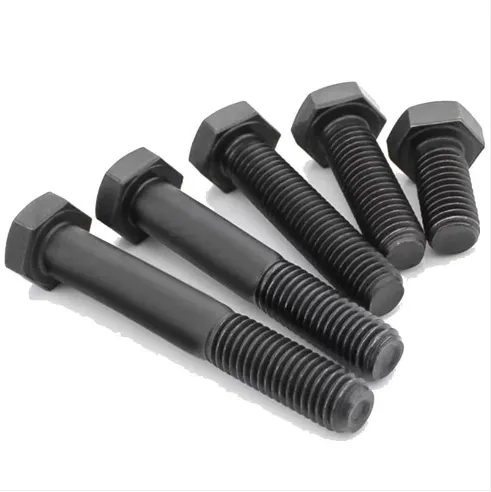Understanding Coarse Thread Locknuts and Their Applications in Mechanical Engineering
دسمبر . 15, 2024 16:24 Back to list
Understanding Coarse Thread Locknuts and Their Applications in Mechanical Engineering
Understanding Coarse Thread Locknuts An Essential Component in Fastening
In the world of mechanical engineering and construction, the importance of reliable fastening systems cannot be overstated. One of the key components used in these systems is the locknut, specifically coarse thread locknuts. These specialized nuts play a pivotal role in ensuring that bolted connections remain tight and secure under various conditions, making them indispensable in many applications.
Coarse thread locknuts are distinguished by their larger and more widely spaced threads compared to fine thread nuts. This design feature not only makes them easier to install but also enhances their ability to withstand vibrations. The coarse threads provide a greater surface area of contact, which increases the friction between the nut and the bolt, helping to prevent loosening. This quality is particularly beneficial in applications where the assembly may be subjected to dynamic loads or vibrations—such as in automotive, aerospace, machinery, and construction industries.
One of the primary materials used in manufacturing coarse thread locknuts is steel
. Steel locknuts are often treated with various coatings or finishes, such as zinc plating, to improve their corrosion resistance. This property is essential when locknuts are used in outdoor environments or in applications involving exposure to moisture and other corrosive elements. Additionally, locknuts can be made from materials like nylon or other plastics for applications where weight savings and resistance to electrical conductivity are desired.coarse thread locknuts

Locknuts come in various designs, including prevailing torque locknuts and jam nuts. Prevailing torque locknuts are designed to offer a specific resistance to loosening that is achieved through deformation of the nut or the incorporation of a nylon insert that grips the bolt threads. On the other hand, jam nuts are typically thinner and are used in conjunction with a standard nut. When tightened against the standard nut, the jam nut helps to lock the assembly in place.
The installation of coarse thread locknuts is relatively straightforward, but it does require attention to detail to ensure optimal performance. It is crucial to select the appropriate size of the locknut based on the bolt diameter and thread pitch to achieve a proper fit. During installation, the locknut should be tightened to the manufacturer’s recommended torque settings, as under-tightening could lead to a loose connection and over-tightening could damage the threads or elevate the risk of failure.
The application of coarse thread locknuts extends beyond just mechanical links; they are also widely used in automotive assemblies, heavy machinery, and structural connections. Their ability to maintain integrity under stress makes them ideal for critical applications. Users often turn to coarse thread locknuts for their durability, reliability, and ease of maintenance, contributing to overall safety in their projects.
In conclusion, coarse thread locknuts represent a fundamental element in the realm of fastening and assembly. Their unique design characteristics, material versatility, and resistance to loosening make them an ideal choice in various industrial applications. Understanding the specific requirements and properties of coarse thread locknuts can lead to improved assembly processes and enhanced longevity of mechanical connections. As industries continue to evolve, so too will the innovations in fastening technology, ensuring that components like coarse thread locknuts remain vital in the realm of engineering and construction.
Latest news
-
Premium Cabinet Bolts Supplier | Wholesale & Custom Solutions
NewsAug.24,2025
-
Reliable Axle Nuts Supplier | Quality & Precision Fasteners
NewsAug.23,2025
-
Durable Bolts for Lawn Mower Handle - Top Supplier & Manufacturer
NewsAug.22,2025
-
High-Quality Bolts for Lawn Mower Handle Supplier & Manufacturer
NewsAug.21,2025
-
Reliable Axle Nuts Supplier | High-Quality Automotive Parts
NewsAug.19,2025
-
Premium Wire Bolts Suppliers | Durable & Reliable Fasteners
NewsAug.18,2025
